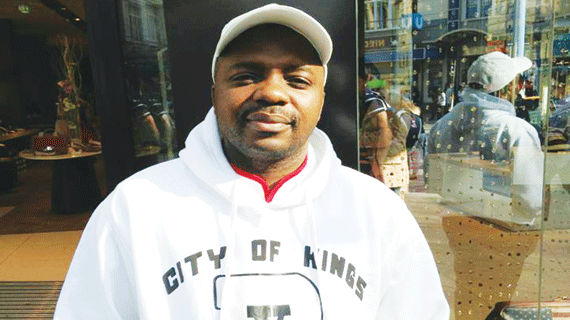
WHAT exactly is wrong with music, dance, theatre, film productions and the artistes themselves from the Southern region of Zimbabwe?
Is success that elusive and evasive to musicians and artistes from Bulawayo, Hwange, Beitbridge and other towns? What are the Harare artistes doing that everybody else is not doing in pursuit of success, awards and good living?
The media is infested with complaints from all directions from artistes of the south. Blame, counter accusations, denial and in most cases despair seem to characterise the plea from many an artiste in Bulawayo in particular.
What I do not comprehend is whether it is already cast in mortar and iron that as long as an artiste comes from the southern region of Zimbabwe then they are doomed to fail.
We all seem to have submitted ourselves to a notion that the struggle is lost. To start with who says the local artistes from a region regarded as the cultural hub of culture, arts and creativity have failed their fans. By whose and by what standards do we measure the success and the failure of one as an artiste?
Some artistes measure their success on winning awards. To them failing to win a National Arts Merit Award (Nama) means that they have not lived up to the measurement of success. Others feel that when their songs and videos play regularly on radio and television, that is equivalent to success. To many playing at as many events paying or not, being in the Press and hitting headlines week in and week out means and explains their success.
Then there is the artiste who measures his success in terms of returns. If his craft feeds him and his family, if his craft sends his children to school and buys him a living, that to him or her defines success.
For how long will we continue feeling cheated and start believing ourselves?
- Chamisa under fire over US$120K donation
- Mavhunga puts DeMbare into Chibuku quarterfinals
- Pension funds bet on Cabora Bassa oilfields
- Councils defy govt fire tender directive
Keep Reading
Even if it were to be true that we are indeed cheated, suppressed and denied access to success — however, we define it — are we doing enough to lift up, dust ourselves and focus on our careers? Nama does not owe artistes anything in my opinion. I believe that it is a National Arts Council’s private project that chooses who so ever they want to recognise in their own terms and conditions.
Unless and until we are invited to set the rules, we cannot wake up to complain about the outcome. It does not mean that when Nama fails to recognise one’s success, their work and their efforts then they have failed in their endeavour to be a successful artiste.
It is certainly gratifying to be awarded for an outstanding achievement, but we need to remember that the beauty and quality of a product is a reserved right in the eye of the beholder. If you are not told publicly that you are a good farmer it does not mean you have failed in your bid to farm.
My point is that while the ground may not be level for artistes depending on where they come from, they should not shift focus from the main aim. They should not fall into the trap of crying over spilt milk all the time. Jeys Marabini insists that he is not a “chancer” when it comes to music.
I agree with him absolutely. That is the spirit every artiste who feels ignored should spray on themselves like a deodorant. Keep walking. Artistes from the south should understand that the arts business is like politics. It is a populist craft. By that I mean you need to appeal to as many people if you are to reap rewards financially or even honorary from music, dance and theatre.
Surely we cannot begrudge the likes of Jah Prayzah, Tuku and Macheso their success.
Hate them or love them, they are popular with their fans. They have a huge following and they are trendy. I think artistes from Bulawayo and other cities need more visibility.
They need to advertise themselves, create stables and forcefully market their work.
They need to make people sing along to their songs, debate their plays, start fashion trends and brand their dance styles. If television is not showing your work, if radios are not playing your music and papers are not writing about you, find other avenues.
The target is always the population. Go out in stables and play your music and perform your plays.
Create websites and write about yourself. It may be minimal, but trust me when the people begin to love your work and sing your tune, the media and all the forces that be will have no choice but to oblige.
Do away with the defeatist attitude and adopt the positive “we can move mountains attitude.”










